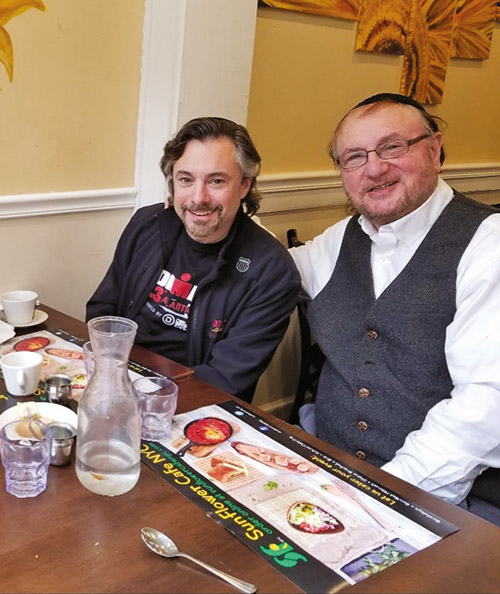

Passover is many things for me: the texture of my grandmother’s potato kugel. My father leading the Seder from the head of the table in his white kittel. The competition between my siblings and myself for who would find the afikoman. When I started teaching, Passover also became about President Abraham Lincoln.
He was shot on Thursday, April 13, and died on Friday, April 14. In 1865, the Passover holiday started on Sunday night April 9. Lincoln was very popular with Jews in the North and many of them found out about the President’s death, in shul on Shabbos Chol Hamoed Pesach.
There is more…
The holiday of Pesach revolves around the theme of remembering that we were slaves. Less than only 156 years ago, slavery was a part of the fabric of American life.
Contrary to popular belief, Lincoln did not prosecute a war to end slavery. Lincoln “had nothing but moral outrage” for slavery but slavery was protected by the Constitution.
Lincoln engaged the rebellious states of the Southern Confederacy to restore the Union because he was bound by his oath of office to “preserve the union.”
So, what does this have to do with Pesach?
When Lincoln gave the Gettysburg Address in 1863, he spoke about, “a new birth of freedom.”
The destructive struggle of the Civil War was a transformative moment for Americans. It was an opportunity to move towards the “more perfect Union” the founding fathers inscribed in the Constitution.
This was not as elementary school children learn: North=good; South=bad, but rather a national problem for all Americans. To quote John Brown, “The question now before the American citizens is no longer alone, ‘Can the slaves be made free?’ but, ‘Are we free, or are we slaves under Southern mob law?” Northerners had profited from slavery when the cotton was shipped north for processing.
The Civil War was a chance to remake the fabric of America.
As Jews, we believe that Hashem is constantly remaking the world. Pesach is an opportunity to remake ourselves. We prepare for the holiday by searching for the chametz and destroying it. As a child I remember how we turned the house upside down, searching for every crumb of chametz. We may have been a little OCD going through the pages of books we did not intend to read again, but we believed that the physical act of purging our home, our physical space of chametz would transform our Seder and our Yom Tov. We still physically transform our home. We cover our kitchen with tin foil until that room looks like something from a sci-fi movie.
Twenty-four hours before the Seder we designate areas of the house:
“Chametz may be eaten here.” “Kitchen closed, no eating in here.”
Even the freezers are labeled “kosher for Passover” and “Chametz: You open and I will stuff you in.”
It is one thing to transform the world around us with tin foil and masking tape. If we want to experience what it means to consider ourselves like we were released from bondage, we must examine our own personal “birth of freedom” from slavery.
But how does one do that in 2021?
Rabbi Tsvi Blanchard whom I’ve had the chance to learn with for many years told me that some bad habits are a form of personal slavery.
From trying to quit cigarettes to being addicted to one’s cell phone, not all chains are physical.
I no longer smoke and physically turning off the cell phone is easy but freeing one’s mind from the temptation to answer each WhatsApp message is much harder. This is a struggle for me as Shabbos draws to a close every week. My first impulse after I blow out the Havdala candle is to reach for my phone. I struggle, I falter, I try again. Hashem chose to give the Torah to humans because we are not perfect. Rabbi Blanchard reminded me that the Haggadah teaches us that we are experiencing this together, as a people. That’s what it means to retell the story of people in exile. Those who left Egypt had a collective narrative, but they also had their own individual narrative. As we collectively experience our own personal Egypts, we continue to move towards “a more perfect union” with Hashem in our struggle to be free.
David Roher is a USAT certified triathlon and marathon coach. He is a multi-Ironman finisher and veteran special education teacher. He is on Instagram @David Roher140.6.
He can be reached at [email protected]










